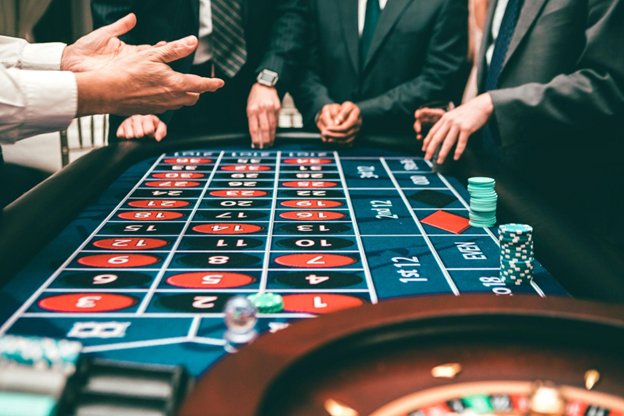
Source: https://www.pexels.com/photo/people-playing-poker-3279695/
Hollywood loves a casino scene. The tension, the stakes, the possibility of losing everything on the turn of a card. From James Bond’s suave baccarat sessions to Rain Man’s card-counting marathon, gambling provides instant drama. But films get almost everything wrong about how gambling actually works, creating myths that real players spend years unlearning.
Take the classic “going all in” moment. Every poker film has one. The hero pushes their chips forward, dramatic music swells, and somehow they always have exactly the right amount to match their opponent’s bet. Real poker doesn’t work like that. Table limits exist. You can’t just throw your car keys on the table like in Casino Royale. And that dramatic pause before revealing cards? In actual casinos, dealers control the pace, not players looking for their close-up.
Card counting gets the Hollywood treatment, too. Rain Man made it look like autism equals instant millions at blackjack. The Hangover turned it into a montage of easy money. Reality? Card counting is barely profitable, requires enormous concentration, and casinos will politely ask you to leave long before you make serious money.
Those scenes where someone counts cards and wins hundreds of thousands in one night? Pure fantasy. According to the Esports Insider non-GamStop overview, these platforms offer everything from high-stakes tables to penny slots, serving millions of UK players who simply want more game variety and bigger bonuses without UKGC restrictions. Real card counters grind out small edges over thousands of hands, and most barely break even after expenses.
The biggest lie films tell is about tells. Every poker movie has that moment where someone spots a nervous tick, a scratch of the nose, and suddenly knows their opponent is bluffing. Rounders built an entire plot around Oreos. Casino Royale had Le Chiffre’s bleeding eye. Real poker tells exist, but they’re subtle, inconsistent, and mostly useless against decent players.
Professional poker is won through mathematics and game theory, not psychology. Watch actual tournament footage and you’ll see players staring at nothing, avoiding eye contact entirely, making decisions based on pot odds rather than body language.
Then there’s the lifestyle myth. Movie gamblers are either millionaire playboys in tuxedos or desperate addicts losing their homes. There’s no middle ground. Nobody shows the reality: regular people setting aside entertainment budgets, playing for a few hours, maybe winning small amounts, maybe losing, then going home. No dramatic confrontations, no life-changing moments—just people choosing where they want to play.
Films also massively overstate how much control players have. Ocean’s Eleven makes rigging games look like a matter of clever engineering. The Sting shows elaborate cons at the poker table. Modern casinos use technology that makes these schemes impossible. Every deck is tracked, every chip has RFID tags, cameras cover every angle, and AI systems flag suspicious patterns instantly. That scene where someone swaps decks or marked cards? Security would spot it before the first hand was dealt.
Roulette gets ludicrous treatment. Films show people betting everything on red or black like it’s a 50/50 proposition. They ignore the zero (and double zero in American roulette) that gives the house its edge. Nobody mentions that betting systems like Martingale sound clever but fail mathematically. And that trick where someone calculates where the ball will land based on wheel speed? Casinos use different balls, change dealers regularly, and vary wheel speeds specifically to prevent this.
The speed is all wrong, too. Movie poker hands last thirty seconds. Real hands can take five minutes. Film blackjack moves at lightning pace. Actual dealers follow strict procedures that slow everything down. Even slot machines, the simplest games, get misrepresented. Films show people pulling levers and winning instantly. Modern slots are computers generating thousands of results per second. That lever? It’s just for show.
What films do get right is the atmosphere. The sounds, lights, and energy of casinos translate well to the screen. The excitement of winning, the frustration of losing, the social dynamics at a poker table, movies capture these feelings even if they bungle the details. The tension is real, even if the action isn’t.
Perhaps that’s why these myths persist. The reality of gambling, mostly mathematical, often boring, and rarely dramatic, doesn’t make good cinema. So Hollywood keeps dealing us fantasy versions where card counting guarantees riches, tells never lie, and the hero always wins on the river. Just remember, while watching, real gambling looks nothing like the movies. And that’s probably a good thing.
